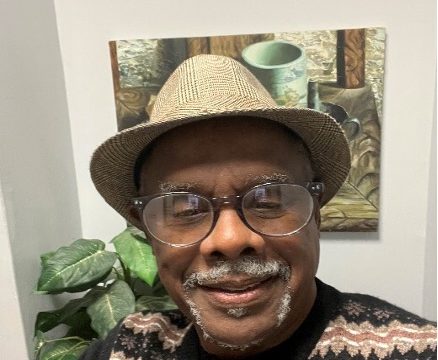

I was about to turn the page in the Chattanooga News Chronicle when I had one of my “whoa, I can do something with that,” moments. This time the source was the article, “America Could Learn from This Talk Show,” by Matthew Walther, editor, Catholic Literary Journal.
Suddenly out of nowhere, enter one Tommy Tuberville and a largely unknown Eli Crane, test cases in “I can’t believe he said that” incredibleness if ever there’s been ones. We’ll get to these guy’s verbal nuttiness further down.
But first, about the newspaper article I mentioned at the outset.
You see, I extracted key lines from the article to construct the piece you’re now reading. In a nutshell, it is structured around two vocal sports commentators, Skip Bayless and ex NFL football player Shannon Sharp – Bayless white, Sharp African American – who often go toe to toe in disagreement when discussing both sports and thorny social issues with, said the author, “almost reckless lack of restraint, seemingly ignorant of the self-censorship that pervades so much of polite discourse.” A departing point from that article toward the end.
Now back to Tuberville and Crane and their recent bouts of OMIF (Open Mouth, Insert Foot), or “tasting leather,” as we used to say when I was growing up.
Well, Tuberville, the Alabama senator ignited a firestorm of controversy recently when he told CNN that white nationalists — a group defined as “militant white people who espouse white supremacy and advocate enforced racial segregation,” by Merriam-Webster — are not, get this, inherently racist. You don’t have to take my word for it, look it up yourself.
Clearly irritated for being called out, “that’s your opinion,” he huffed at the interviewer, adding that a white nationalist “is an American.” Whoa, of course they’re Americans Tommy. But to poo poo this aside as “someone else’s definition of a racist” is insulting and opens you up to well deserved criticism.
Well apparently it came as a shock to Tommy that many found his remark abhorrently racist because on Capitol Hill a day later, and severely tongue tied, he tried to clarify his views but ended up digging himself deeper into a racial quagmire with, fasten your seatbelts readers, “I’m not racist because I coached lots of minorities as a football coach.” (Tommy’s version of “some of my best friends are colored”).
One is left to wonder what all those “minorities” he coached at Auburn, Cincinnati and Texas Tech universities thought about their former coach’s comments, let alone the reputations of those institutions and the state of Alabama.
Now not to be outdone, in the House of Representatives, Arizona Rep. Eli Crane created his own uproar when he referred to Black Americans as “colored people,” and claimed later that he simply “misspoke.” Hey c’mon Eli, did you miss the “Tuberville memo” from the previous week?
Lord, give me strength.
Okay, let’s go to a still relevant piece on race in America penned in 2011 by Pulitzer Prize winner Leonard Pitts, Jr. Sayeth he, “I’m here to tell you that race is like a four-car pileup on the freeway; it simultaneously attracts and repels us. Because of this, we can’t not talk about it. Yet at the same time, we can’t talk about it, either. So we talk about race, but don’t. More often we yell about race or talk around race.”
“It’s always about race, isn’t it,” continued Pitts. “Even when it shouldn’t be, even if don’t want it to be, even when you flee it like a back-alley mugger, it’s always there. Wherever you go, there it is – race in your face.”
So thanks to cultural troglodytes Tuberville and Crane, we again find ourselves caught in a four-car pileup on freeway America with rubbernecking passersby glaring from the safety of their autos while whispering “thank the Lord that it wasn’t me.” Their bouts of OMIF are spectacularly at odds with present day nomenclature. You’d think that somehow – picking up a book for heaven’s sake – that they’d know better.
As promised, back to Walther’s article.
“A stray remark, however churlish,” he writes, “need not mean a permanent asterisk next to a name, that forthright conversation begun from opposing premises can, in fact, lead to increased understanding, and that old-fashioned virtues such as forgiveness and liberality still have a place, alongside shouting and friendly wagers, in American life.”
A mouthful, yes? But how about testing that compelling paragraph as a foundation for a debate about a contemporary hot issue – transgender, book banning, abortions, political candidates, gay marriage (yes, even comments by Tuberville and Crane), then see if you change your mind after hearing someone else’s reasoning.
Now if and when you decide to enter conversations about controversial issues where participants are brutally honest, understand that it all boils down to a litmus test of personal choices in response to what is said. The question before us is do we excuse the problematic remark as an occasional slip of tongue, as all of us are sometimes guilty of, or was it something purposeful and sinister?
In the end, if history is an accurate predictor, I suppose that we will anticipate the next Tuberville/Crane-like four-car racial pileup on freeway America and, in the words of Leonard Pitts, “…go about with fingers in ears singing “la, la, la” at the top of our lungs rather hearing inconvenient truths…”
So, fasten your seatbelts …. and make sure that you are fully insured!
Terry Howard is an award-winning trainer, writer, and storyteller. He is a contributing writer with the Chattanooga News Chronicle, The American Diversity Report, The Douglas County Sentinel, Blackmarket.com, co-founder of the “26 Tiny Paint Brushes” writers’ guild, recipient of the 2019 Dr. Martin Luther King, Jr. Leadership Award, and third place winner of the 2022 Georgia Press Award.


